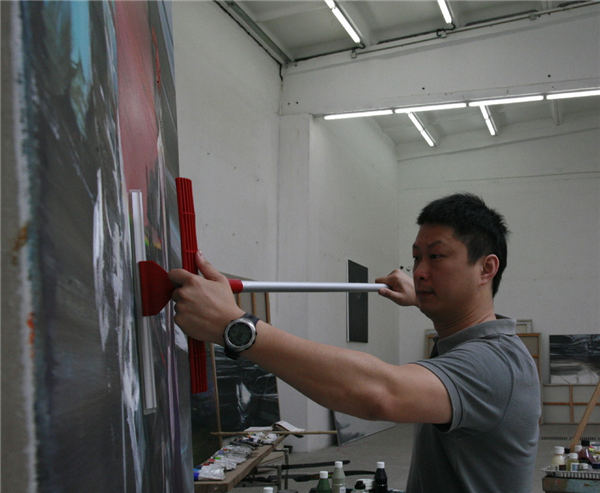 |
|
Jia Aili worked on the sold painting Brightening World in his studio in Beijing. [Photo provided to China Daily] |
"She said it was an early winter morning in 1950, when Chinese dwelling houses along the Yalu River (the bordering river of China and the DPRK) were attacked by plane bombing. She saw broken steamers and human bodies hung on the big pagoda trees, and then the sun slowly rose from the riverbank," Jia tells China Daily in an e-mail interview.
"It is history and a true story. It has become the shared wounds of countries and people who were involved in that war, " he says, adding that the younger generations should think about how to light up the world and make the choice of using wisdom and love instead of violence.
Karen Smith, a curator and a Chinese contemporary art critic, says that Jia's paintings generally ask people to consider "what to look forward to if we continue to destroy what we create? They prompt us to think about what it is we value".
She says the painting "springs from an essential human quality", empathy, for which all those come together in support of the Special Olympics.
Jia says it was Liu Heung Shing, whom he highly respects, that first introduced him to the Special Olympics. The famed photographer serves on a senior advisory council that the organization established in its East Asia section last April.
When attending the Special Olympics' events, Jia was deeply moved by the positive spirit of athletes and the passion of Mary Gu, Special Olympics' regional president for East Asia.
"Both sports and art are lovely ways to discover the power of life. By promoting the spirit of Special Olympics, people, each as an unique body of energy, seek to affirm the value and meaning of life.
"The more social attention is drawn to people with mental disabilities and their families, the better they can be integrated into communities on a more profound level," he says.